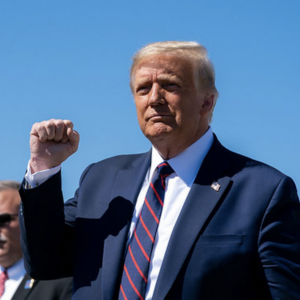TAYLOR: Manifesting America’s Golden Age with Peace Through Strategy

The results of the elections show many are optimistic that President-elect Trump will bring about a new Golden Age in America. What will this new era mean for the world? Most seek peace, prosperity and the hope of a better future for all. The hardships associated with the Biden administration, including inflation, crime, and border insecurity, are ready for much-needed relief.
America, the greatest nation in history, expressed its voice through election results coast to coast, returning a trifecta of conservatism to the presidency, Senate and House of Representatives — including a significant victory in the popular vote. The American people are sending leaders into office with a mandate.
Recent history reminds us of the fatigue and loss that war brings. The bitterness of bloodshed is abhorred by all involved. With a change in leadership, we have the potential to promote harmony and save lives.
Rather than investing in allies’ wars, Trump will act as commander-in-chief and diplomat-in-chief to broker ceasefires in Eastern Europe and the Middle East. Trump will invest in saving lives, not merely providing warfighting equipment, with a steady backbone of competence and conviction.
“Peace through strategy” is the long-standing mission of Defending Our Country. On the eve of this most consequential election for America, with the future of Western democracy on the ballot, we attended a United Kingdom-sponsored event in London. From academics to taxi drivers, waiters and shopkeepers, everyone we encountered wished for Trump to return to the Oval Office.
With the election results determined and campaign season over, the time for governing is here. However, the rhetoric that rallies a nominee’s base differs from the diplomacy needed to lead the Free World into a new Golden Age. It is time for Trump and the transition team to think strategically through hiring decisions that can broker “peace through strategy.”
The strategy for manifesting a Golden Age demands an executive branch filled with the most innovative scientists and researchers, accomplished business leaders, and acclaimed minds from the private sector. The inbreeding of government bureaucracy and the Ivory Tower pipeline of how Washington has always done business continues to miss the mark and the heartbeat of democracy, as evidenced by the historic vote of the American people and sentiment abroad.
The path forward for the Golden Age requires Trump to select capable leaders with a record that speaks to their dedication and calling to serve the nation faithfully and effectively. By constitutional design, the executive branch represents a bench of talented experts who can advise on and execute the entire functioning of the federal government.
The priority should be retaining an executive branch that will formulate and streamline the federal budget. Second, policy frameworks should include a grand strategy that brings in allies and partners across the globe instead of isolating and creating adversarial coalitions. Third, an emphasis on the “peace through strategy” narrative should be adopted. Leaders and the public have realized that the brute focus on “peace through strength” has not served America or its partners productively since the end of the Cold War.
The 21st century has brought unique challenges and increasing conflicts that have redefined effective strategies. It is time for adversarial world leaders, such as Russian President Vladimir Putin, Chinese Communist Party Chairman Xi Jinping, the Iranian Ayatollah Ali Hosseini Khamenei, and North Korean dictator Kim Jong Un to redefine their legacies and join the Golden Age — not watch it occur as tyrants on the sidelines. These adversarial leaders have proven to the world that their paths to war do not win, are unsustainable, and have not advanced their national interests.
As Americans voted for Trump, the world watched and longed for his return to power. The Golden Age is the clarion call of Trump to America’s citizens, global leaders, and individuals worldwide to live securely and safely.
America is at full potential, and a Golden Age is achievable if the president hires those with a different spirit and mindset who can innovate, create and shape a better future through the manifestation and global mandate of “peace through strategy.”




